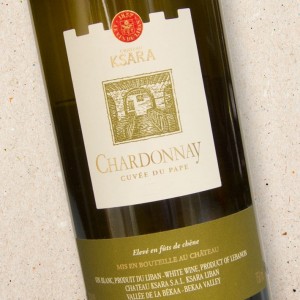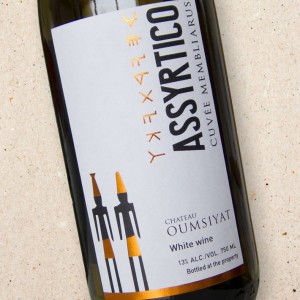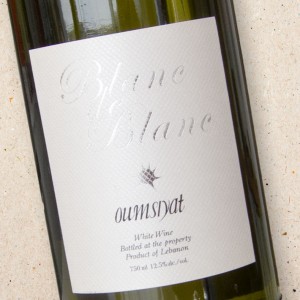Château Ksara Merwah 2023
The first 100% Merwah wine to be released, this unique wine delights with vibrant citrus aromas, delicate white floral notes and a streak of minerality. The deliciously textured palate is full of tropical fruit flavours, with undertones of guava, lime and summer melon all beautifully balanced by refreshing zing of acidity.
Merwah is an indigenous variety to Lebanon. The vines are grown surrounding the Douma village in a terraced vineyard which sits at 1600 metres above sea level. The ungrafted plants are over 60 years old and are very low yielding at 35 hectolitres per hectare, resulting in a limited production of this unique wine. They are grown on a trellis in sandy clay soils which are rich in iron.
The Merwah is hand-picked at a low yield and whole-bunch pressed. Sedimentation and fermentation are carried out at 16°C, with a short period of skin contact and five days of fine lees ageing.
| RRP | £21.50 |
| Vintage | 2023 |
| Alcoholic strength | 12.5% |
| Serve with | Lebanese Mezze, grilled fish or seafood |
| Country | Lebanon |
| Region | Bekaa Valley |
| Grapes | Merwah 100% |
| Dry/Sweet value | 1 |
| Vegetarian | Yes |
| Vegan | Yes |
| Milk | No |
| Eggs | No |
| Organic | No |
| Biodynamic | No |
Château Ksara is Lebanon's oldest winery. Its traditions can be traced back to 1857 when a group of Jesuit monks acquired the property. The Jesuits applied their knowledge of science and agriculture to plant French vines as well as developing two kilometres of Roman caves that proved ideal for the storage of wine. The Jesuits sold the winery to its current owners in 1973. Ksara is now the most modern winery in the region as well as the largest producer in the country. Their annual production is over 2.8 million bottles and they sell their wines in more than 40 countries worldwide. Château Ksara is certified ISO 9001 and ISO 2200.00 for its viticulture, production and sales guaranteeing quality and consistency year on year.
Ksara's vineyards are located in the central and western Bekaa Valley at high altitudes. The Bekaa enjoys dry summers and has the advantage of its own natural water table, courtesy of the melting snow that runs off the Lebanon and AntiLebanon mountain ranges; therefore no irrigation is needed in the vineyards. The slopes on either side of the valley and the valley itself create a unique microclimate in which the cool nights compensate for the hot summer days.










